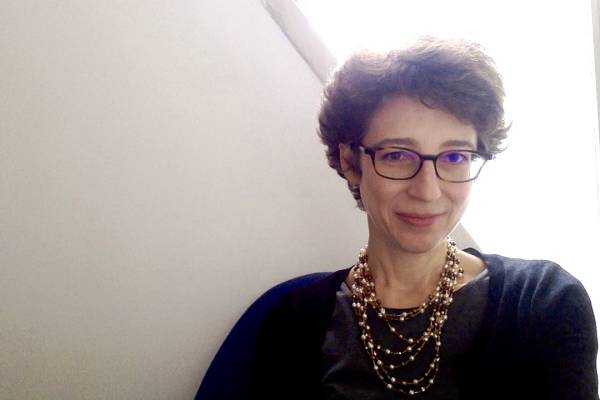Ms Julia Chryssostalis


Julia is a Principal Lecturer at Westminster Law School and Co-Director of Westminster Law and Theory Lab. She joined Westminster in 2003. She studied law at the School of Law, University of Thessaloniki, and political theory and ideology and discourse analysis with Ernesto Laclau at the Department of Government, University of Essex. She trained and practised law as an Attorney with the Athens Bar, in Athens, Greece and during that time she lead the Steering Committee for Human Rights Education in the Greek Section of Amnesty International.
Before joining Westminster, she held various teaching appointments at the Department of Governement and the Department of Law, University of Essex, Birkbeck Law School, University of London, and Kent Law School, University of Kent. At Westminster she has taught European Union Law, Civil Law, and New Legal Thinking. In 2005-2020, she was part of the senior teaching management team at Westminster Law School, leading on the European Legal Studies LLB Course and the Law with French Law LLB Course. She was also the Global Engagement Co-ordinator for the School.
Julia is a member of the Editorial Board and Co-ordinating Editor of Feminist Legal Studies.
She has held visiting fellowships at the European University Institute in Florence, Princeton University and the University of Cape Town. She has given keynotes, guest seminars and lectures at Princeton University, the European University Institute, the University of Helsinki, Cape Town, Oxford, Kent, Tilburg, London (Goldsmiths, Royal Holloway), PUC-Rio, Sciences-Po and Birkbeck College among others. She has translated work by Ernesto Laclau and Toni Negri.
Julia's work is at the interface of critical legal theory and law and humanities, more specifically in the area of law and aesthetics. Drawing on psychoanalytic theory and the post-phenomenological continental philosophical tradition, it explores what of law is left outside the official forms, structures, and accounts of law, legality and normativity, but nonetheless norms and rules what we understand as law, and why this matters. She writes on law and the city, law and literature, law and aesthetics, feminist theory, Carl Schmitt and Hannah Arendt, spatial justice and postcoloniality, figures of nomos, and law and hearing.
Her work with Jaco Barnard-Naudé, Professor of Jurisprudence, at the Faculty of Law, University of Cape Town, on the nomos of apartheid and coloniality in South Africa, that examines how the colonial and apartheid spatial ordering of inequality and segregation remains in place despite the dismantling of the apartheid regime, was funded by the National Research Foundation of South Africa (2014-16) and by the British Academy through a Newton Advanced Fellowship (2017-2019 - AF16077). Together, and with the support of the Newton Fellowship, they edited a collection of essays bringing together scholars from law, architecture, literature, and photography, titled Spatial Justice After Apartheid. Nomos in the Postcolony (2023) that was published by Routledge; made a documentary film, called Spatial Justice in the Postcolony (Dir. Dian Weys, 26:44 minutes); and set up a website with resources on nomos, law’s spatiality, and coloniality https://afternomos.org/
Her current research focuses on the significance of hearing and listening in law. It develops previous work on otonomy, or the laws of the ear, that determine how we hear and are being heard (or not) in law, and builds on a recent piece she published on law and hearing (“Nomos is an Air. Hearing as a Juridical Faculty” in Mandic et al (eds), Hear (2023)).